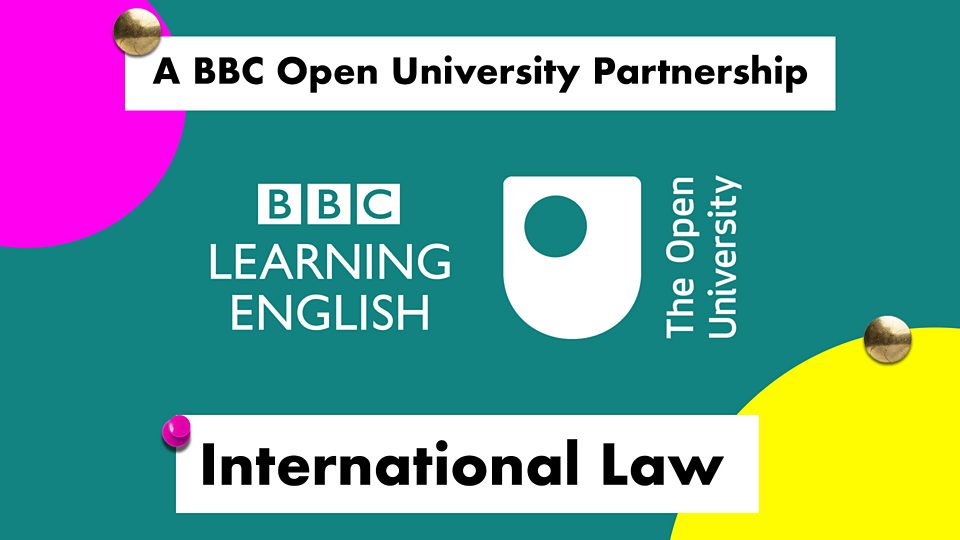Questioning the power of international law

BBC Learning English and the UK’s largest academic institution, The Open University, have joined forces to explore the power of international law. The award-winning team of BBC Learning English has collaborated with renowned academics from The Open University to create Making and Breaking International Law – content focusing on what the individual, big business and the national state can do within a framework of international law.
As the world sees the devastation caused by climate change, as the availability of fresh water becomes more and more limited, as corporations become bigger than countries and race to Mars – what is the responsibility of countries and companies to current and future generations? What is the role of international law – or lack of it? Can it help protect individuals and guide and manage the behaviour of countries and companies? Is international law even worth the paper it is written on?
BBC Learning English Editor Paul Scott says: “For BBC Learning English, working alongside The Open University always means an exciting opportunity to bring new approaches and programmes to our audiences around the world. Benefitting from top academic expertise, the series explains key concepts of international law in a way that, while being legally accurate, is also helpful and useful for the learners of English, wherever they are.”
Caroline Ogilvie, Head of Broadcast & Partnerships at The Open University, adds: “We are delighted to once again be partnering with BBC Learning English and to have had the opportunity to work on this fascinating subject area which helps illuminate and explain different aspects of international law.”
The new series shows how individuals can use international law to create positive change – and even change the law itself. Animated guides help audiences around the world understand the background, history and key elements of international law, explaining where it originates, what it is, how the UN and human rights are involved in it, and what might happen if it’s breached. Twenty presenter-led programmes look at increasingly important areas of international law: space, environment, water, and the power of multinationals.
The programmes address a wide range of issues – such as ownership of space and war in space, whether companies are really interested in abiding by the law, and what happens when people challenge big business – and ask if access to water can be discriminatory or whether international law can help stop islands sinking. The answers and explanations are provided via case-studies and interviews with practising lawyers and legal experts, exploring the power and influence of international law.
The Making and Breaking International Law series launches on Monday 4 October with content focusing on space, marking the start of World Space Week. This will be followed with explainers and programmes themed on environment, water, and finally, the power of multinationals.
BBC Learning English is a world leader in using international broadcasting to teach English. Part of the BBC World Service, BBC Learning English connects with its audiences via the website, bbclearningenglish.com , YouTube, Facebook, Instagram, Twitter and Viber, and podcasts such as The English We Speak and 6 Minute English. The BBC Learning English App brings together the BBC’s most popular English-teaching content. While the majority of the BBC Learning English content is in English, it is also produced as bilingual content in Afaan Oromoo, Amharic, Mandarin Chinese, Korean, Thai, and Tigrinya.
